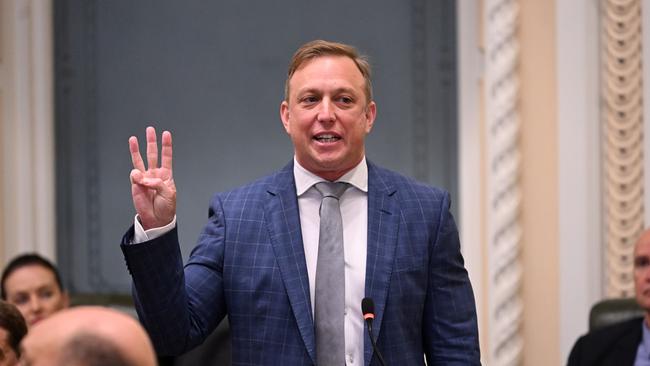Steven Miles must get his priorities right

The youth crime crisis dominated proceedings as the Liberal National opposition went after Labor’s 2016 decision to introduce a legal provision that children should be detained in custody “only as a last resort and for the least time … justified in the circumstances”. Queenslanders “want to feel safe to go about their business – to duck to the shops for some last-minute groceries – without fearing for their safety”, Mr Miles said. But words are cheap. He and his government will be judged by their actions.
Unlike Victoria, which pulled the pin on its 2026 Commonwealth Games because of lack of planning and lack of resources, Queensland has no such option with the 2032 Olympics. With good planning and sound financial management the event will be a catalyst for development and transport infrastructure that will set up Southeast Queensland for several generations.
Planning, however, has descended into utter shambles. After the advantage of an 11-year runway to get the big decisions right, the clock is ticking. Labor’s plan to rebuild the Gabba, originally costed at $1bn but soon ballooning to $2.7bn, has come to symbolise everything that has gone wrong with planning to date, starting with former premier Annastacia Palaszczuk’s shonky costings.
And, as Jamie Walker and Michael McKenna revealed last week, economic modelling of the planned Brisbane Arena auditorium, kept under wraps since 2018, found the showpiece venue would cost nearly $1bn more than the income and benefits it would generate. For Mr Miles, who assisted Ms Palaszczuk on Olympic planning, getting the preparations on track will be his major challenge this year.
He also must ensure increasing the state’s carbon emissions reduction target does not price power out of reach for businesses and households. Like Victoria, Queensland has relied too much on big government to grow jobs. Coal revenues, which it has taxed at an exorbitant rate, risking a dampening of investment, have saved Queenslanders from the kind of debt crisis facing Victorians.
But both parties in Queensland need to show how they plan to reduce debt and improve conditions to encourage private enterprise.


As Queensland Premier Steven Miles plots his course to the state election in October, the best advice he could follow is to look at the record of his Labor Left colleagues in Victoria and avoid the same mistakes. On his first day in parliament as Premier on Tuesday Mr Miles got one thing right. “I know Queenslanders are angry,” he said.